As a veteran holistic veterinarian and a passionate dog parent, I understand how much you love your Brussels Griffon. You cherish their unique personality, their feisty spirit, and those expressive eyes that seem to understand your every emotion. But did you know that those beautiful eyes are prone to certain health issues? That’s right, Brussels Griffon Eye Health is a topic that every owner of this adorable breed needs to be aware of.
Brussels Griffons, with their distinctive short-nosed, wide-eyed appearance, are susceptible to a variety of eye problems. From minor irritations to severe conditions like cataracts and glaucoma, these issues can affect your pup’s vision and quality of life. But don’t worry, as a seasoned vet, I’m here to guide you through the complexities of Brussels Griffon Eye Disease and provide practical solutions to maintain their eye health.
In this article, we’ll explore the unique eye structure of Brussels Griffons, common eye problems they face, and preventive measures you can take. We’ll also discuss the importance of environmental hygiene and routine eye care in preventing and treating eye issues in Brussels Griffon. So, let’s get started on this journey towards ensuring the best eye health for your beloved Brussels Griffon!
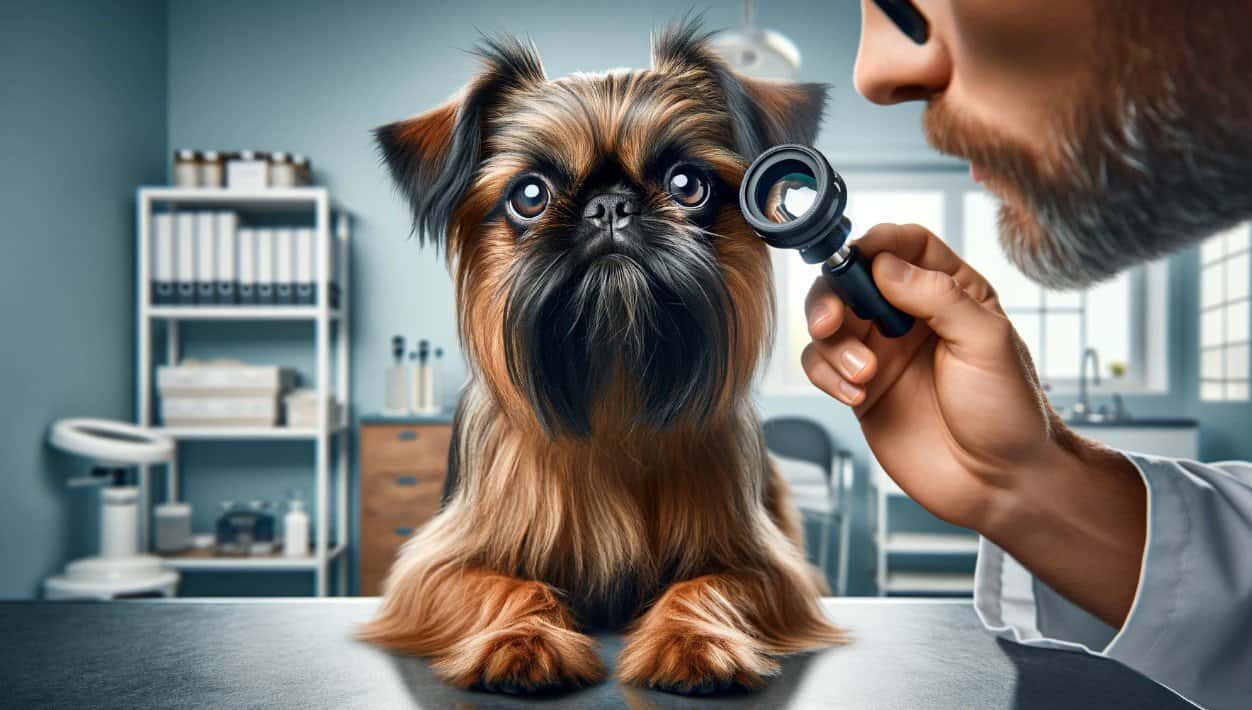
Understanding Breed Specific Eye Structure
As a devoted guardian to your Brussels Griffon, understanding their unique eye structure is crucial to maintaining their overall eye health. This breed is known for their large, expressive eyes, which are not just a charming feature but also a window to their overall health.
Brussels Griffons have a prominent eye structure due to their short nose and flat face, a characteristic found in brachycephalic breeds. Their eyes are round, set well apart and quite large in proportion to their small face. The eyelids are edged with black, which accentuates the expressiveness of their gaze. However, this distinct eye structure also makes them more susceptible to certain eye health issues.
The eye of the Brussels Griffon is protected by the third eyelid, also known as the nictitating membrane, which provides an additional layer of protection. This membrane can sometimes become visible due to certain health conditions, so it’s important to keep an eye out for any changes.
Moreover, the tear film, which is a liquid layer that covers their eyes, plays a crucial role in maintaining eye health. It provides nutrients, removes waste, and offers a smooth surface for light to pass through. Any imbalance in the tear film can lead to dry eyes, a common issue in Brussels Griffons.
The cornea, the clear front surface of the eye, is another vital part of your Brussels Griffon’s eye structure. It’s responsible for focusing light into the eye and protecting the inner parts of the eye. Because of their prominent eyes, Brussels Griffons are at a higher risk of corneal injuries.
Finally, the lens of the eye, located behind the pupil, focuses light onto the retina, which sends images to the brain. Any cloudiness in the lens can lead to cataracts, another common eye issue in this breed.
Understanding your Brussels Griffon’s eye structure can help you better monitor their eye health. Keep in mind that regular vet check-ups are essential to early detection and treatment of potential eye health issues. Remember, your Brussels Griffon’s eyes are not just a window to their soul, but also a window to their overall health. So, let’s keep those expressive eyes healthy and bright!
Common Eye Issues In Brussels Griffon
As a dedicated pet parent, you’re undoubtedly keen on ensuring your Brussels Griffon enjoys optimal health. When it comes to Brussels Griffon Eye Health, there are several common conditions you should be aware of. These little dogs, with their distinctive faces and large, expressive eyes, are unfortunately prone to several eye problems.
Cataracts are one of the most common eye problems in this breed. They cause cloudiness in the lens of the eye, leading to impaired vision or even blindness. If your Brussels Griffon’s eyes appear cloudy or they seem to be having trouble seeing, it’s essential to consult a vet immediately.
Progressive Retinal Atrophy (PRA) is another condition that affects the Brussels Griffon Eye Health. This genetic condition leads to the gradual degeneration of the retina, resulting in night blindness and eventually total blindness. Early detection is critical, so regular eye examinations are vital.
Brussels Griffons are also susceptible to Corneal Ulcers. These are painful sores on the outer layer of the eye which if left untreated, can lead to more serious complications. Signs include squinting, redness, excessive tearing, and sensitivity to light.
Last but not least, Distichiasis is a condition where extra eyelashes grow from the eyelid and rub against the cornea. This can cause discomfort, excessive tearing, and corneal ulcers. Surgical intervention may be necessary if the condition is severe.
Here’s a quick summary of these common Brussels Griffon Eye Health issues:
| Eye Condition | Signs | Action Required |
|---|---|---|
| Cataracts | Cloudy eyes, impaired vision | Immediate vet consultation |
| Progressive Retinal Atrophy (PRA) | Night blindness, gradual loss of vision | Regular eye examinations |
| Corneal Ulcers | Squinting, redness, excessive tearing, light sensitivity | Immediate vet consultation |
| Distichiasis | Discomfort, excessive tearing, possible corneal ulcers | Possible surgical intervention |
Remember, early detection and treatment are key to managing these conditions and ensuring your Brussels Griffon’s overall eye health. Regular vet check-ups and attentive care at home are the best ways to keep your furry friend’s eyes healthy.
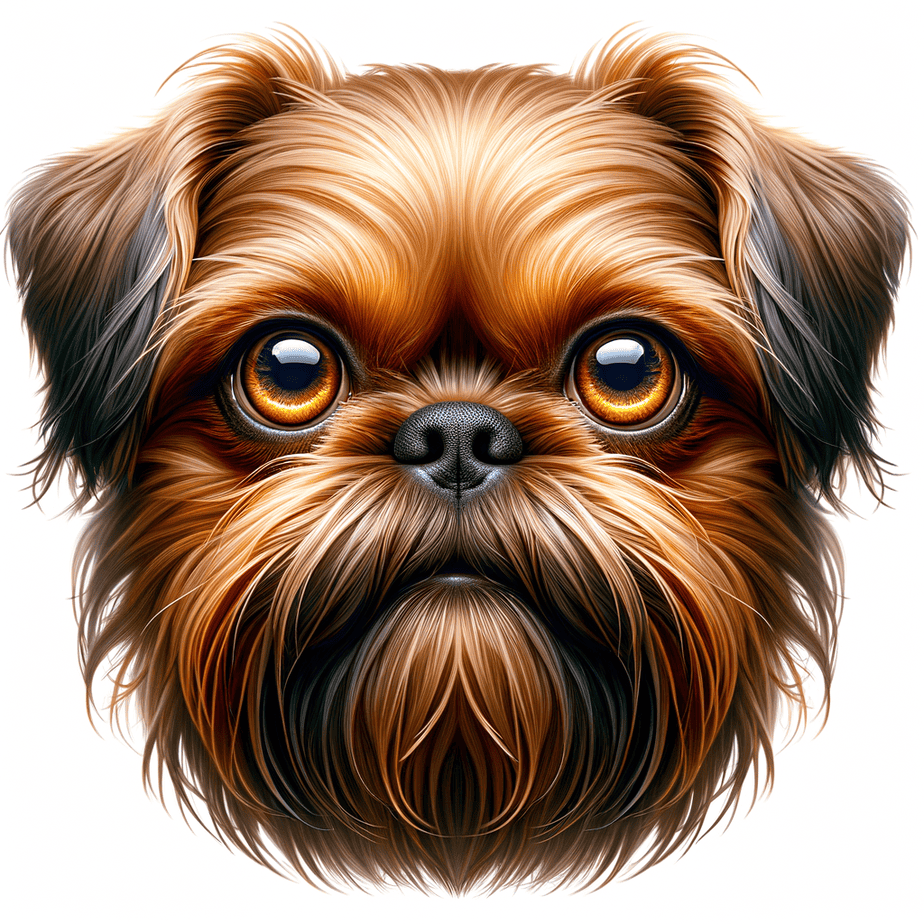
Nourishing Your Brussels Griffon’s Vision: Essential Nutrients for Eye Health
Ensuring your Brussels Griffon gets the right nutrients for optimal eye health is essential for maintaining clear vision and preventing age-related issues. Natural, nutrient-rich foods and supplements can play a key role in supporting their eyesight. From vitamin A-packed freeze-dried liver treats to antioxidant-rich blueberries and targeted supplements like Eyeplex by Standard Process, there are several ways to nourish your dog’s eyes. In this section, we’ll explore how these powerful ingredients contribute to long-term vision health and overall well-being.
Eyeplex by Standard Process
Eyeplex by Standard Process is a specialized supplement designed to support your Brussels Griffon’s eye health with a blend of essential nutrients. Formulated with key vitamins, minerals, and antioxidants, Eyeplex helps protect against oxidative stress, supports retinal function, and promotes overall vision health. Ingredients like vitamin A, vitamin C, and zinc contribute to maintaining strong eyesight, while whole food ingredients provide additional phytonutrients for cellular protection. Adding Eyeplex to your Brussels Griffon’s diet can be especially beneficial for aging dogs or breeds prone to eye conditions, offering targeted nutritional support to keep their vision sharp and healthy for years to come.
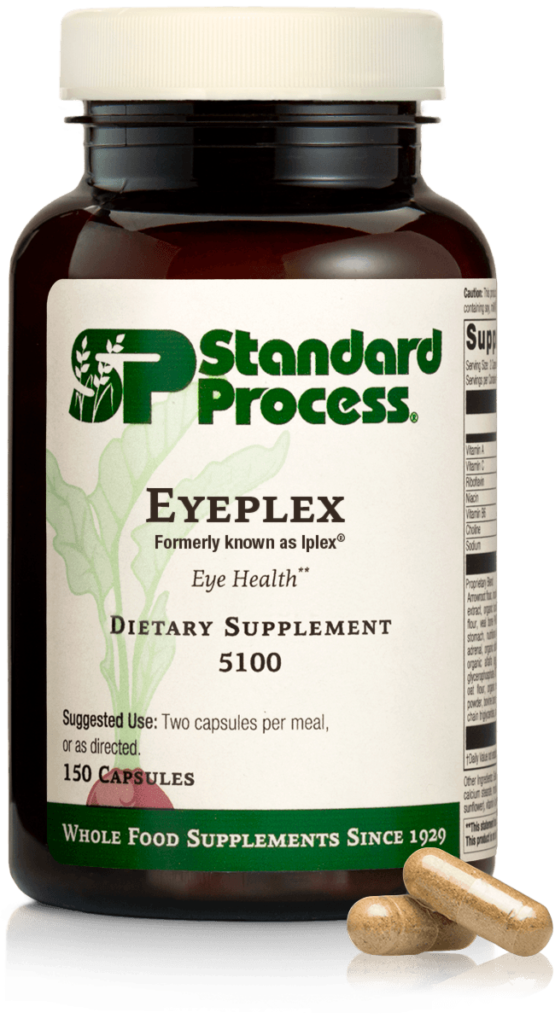
Freeze-Dried Blueberries
Freeze-dried blueberries are a powerhouse of antioxidants that can help protect your Brussels Griffon’s eyes from oxidative stress and age-related damage. Rich in vitamins C and E, as well as anthocyanins, these tiny but mighty berries help combat free radicals that can contribute to eye diseases like cataracts and macular degeneration. Incorporating freeze-dried blueberries into your dog’s diet provides a natural and delicious way to support retinal health, reduce inflammation, and promote overall vision longevity. Plus, they’re a low-calorie, dog-friendly treat that makes a great addition to a balanced diet for long-term eye health.
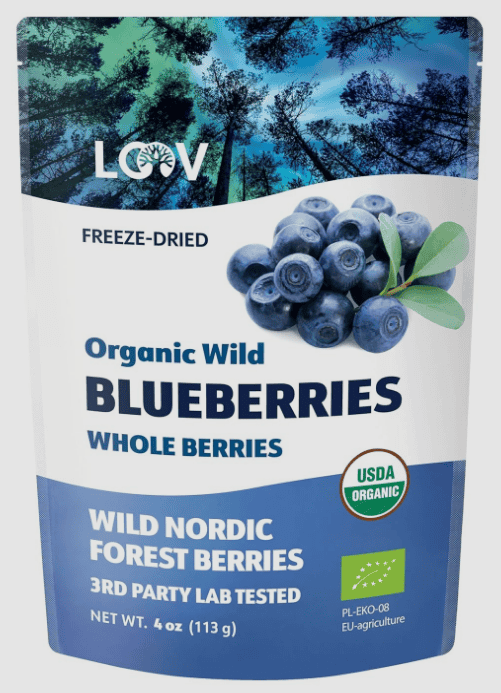
Freeze-Dried Liver
Freeze-dried liver treats are an excellent natural source of vitamin A, an essential nutrient for your Brussels Griffon’s eye health. Vitamin A plays a crucial role in maintaining good vision, especially in low-light conditions, while also supporting overall immune function and skin health. Since liver is rich in bioavailable vitamin A, incorporating freeze-dried liver treats into your dog’s diet provides a convenient and nutritious way to promote optimal eye function. Just be sure to feed them in moderation, as excessive vitamin A can lead to toxicity. Adding these nutrient-packed treats to your pup’s routine is a simple, tasty way to support their long-term vision and well-being!
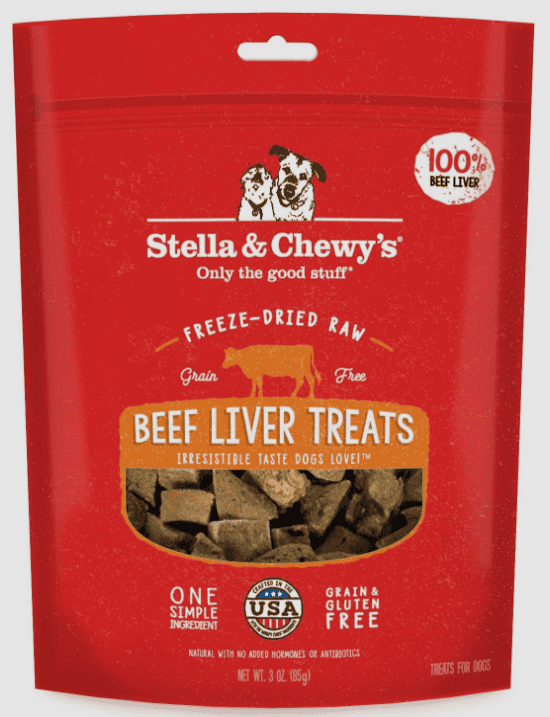
Environmental Hygiene To Reduce Eye Problems in Brussels Griffon
As a loving parent to your Brussels Griffon, maintaining an environment that promotes their eye health is crucial. Here are some factors to consider:
Indoor Air Quality
Indoor air quality plays a vital role in your Brussels Griffon’s eye health. Dust, dander, and other airborne irritants can cause eye discomfort and potentially lead to eye problems. Regular cleaning of your home, including vacuuming and dusting, can significantly reduce these irritants.
Consider investing in an air purifier, especially if someone in the household smokes. Passive smoke can cause severe eye irritation in your Brussels Griffon. Also, ensure your home is well-ventilated to prevent the buildup of irritants.
Sprays, Diffusers, Candles, Incense
While we all love a home that smells good, some products like sprays, diffusers, candles, and incense can cause eye irritation in your Brussels Griffon. The particles released by these products can irritate your dog’s eyes, leading to redness, watering, and discomfort.
Opt for unscented or pet-safe products to prevent this. If you must use scented products, do so in a room where your dog doesn’t frequently visit. Also, ensure the room is well-ventilated to disperse any irritants quickly.
Remember, your Brussels Griffon’s eyes are sensitive, and what doesn’t bother you might bother them. So, it’s always better to err on the side of caution when it comes to the use of scented products in your home.
Outdoor Environment
Outside, be mindful of potential hazards that can harm your Brussels Griffon’s eyes. Sharp branches, tall grasses, and airborne debris can cause eye injuries. When you’re out for a walk, keep your Brussels Griffon on a short leash to control their movements and keep them safe.
Also, consider getting your Brussels Griffon a pair of dog goggles for protection when you’re out on windy days or if you live in an area with lots of dust or pollen. They might look funny wearing them, but it’s a small price to pay for their eye health.
In summary, maintaining a clean and safe environment, both indoors and outdoors, can go a long way in preserving your Brussels Griffon’s eye health. It’s all about being mindful and proactive in eliminating potential eye irritants and hazards.
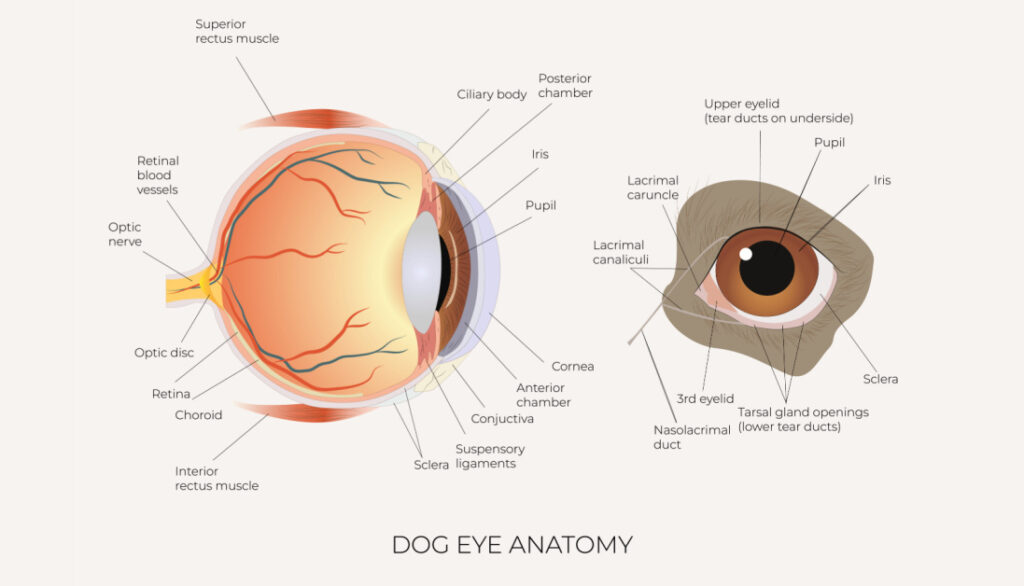
Routine Brussels Griffon Eye Care & Maintenance
Caring for your Brussels Griffon’s eye health involves both daily and weekly routines. This breed is prone to certain eye problems, so taking a proactive approach is essential. Let’s go over some key steps to maintaining your dog’s eye health.
Daily & Weekly Care & Maintenance
Start by inspecting your Brussels Griffon’s eyes daily. Look for signs of redness, irritation, discharge, or cloudiness. If you notice anything unusual, it’s time to visit the vet. Brush away any crust or discharge from the corners of their eyes using a clean, damp cloth. Remember, each eye should be cleaned with a fresh cloth to avoid cross-contamination.
As part of your weekly routine, you should also check the area around your dog’s eyes. Brussels Griffon dogs have a lot of fur around their eyes, which can sometimes lead to irritation or infection. Keep this area clean and trimmed to prevent issues. A professional groomer can help with this if you’re unsure.
Monitor Hair Length, Nail Length, Bath Frequency
Keeping your Brussels Griffon groomed is key to maintaining eye health. Long hair can irritate the eyes and lead to infections. Regularly trim the hair around the eyes, ensuring it doesn’t obstruct their vision. Be careful not to cut too close to the eye. You might find it easier to use blunt-ended scissors or have a professional do it.
Nail length is also important. Long nails can scratch the eyes, leading to serious injuries. Keep your Brussels Griffon’s nails trimmed and smooth. How often you need to trim will depend on your dog’s activities and the speed at which their nails grow.
Finally, consider your dog’s bath frequency. Regular baths can help keep your Brussels Griffon clean and free from potential eye irritants. However, you should avoid getting shampoo or water in their eyes during bath time. Use a tearless shampoo, rinse thoroughly, and ensure their face is properly dried afterward to prevent moisture-related issues.
Remember, the key to Brussels Griffon eye health is regular care and monitoring. If you notice any changes in your dog’s eyes, don’t hesitate to consult a vet. With the right care, your Brussels Griffon can enjoy good eye health for many years to come.
Frequently Asked Questions
1. What are common eye health conditions in Brussels Griffons?
Brussels Griffons are prone to various eye health conditions such as corneal ulcers, cataracts, progressive retinal atrophy (PRA), and dry eye.
2. How can I identify if my Brussels Griffon has an eye health problem?
Watch out for symptoms like redness, excessive tearing, discharge, cloudiness, squinting, frequent blinking, or changes in the appearance of the eyes. If you notice any of these signs, it’s important to consult a veterinarian.
3. What should I do if my Brussels Griffon has an eye injury?
If your Brussels Griffon experiences an eye injury, it’s crucial to seek immediate veterinary attention. Avoid touching or applying any ointments without professional guidance, as it may worsen the condition.
4. Can Brussels Griffon eye conditions be treated?
Many eye conditions in Brussels Griffons can be treated or managed with the help of a veterinarian. Treatment options may include medication, eye drops, surgery, or other appropriate interventions depending on the specific condition.
5. How can I prevent eye health problems in my Brussels Griffon?
To minimize the risk of eye health issues, it is recommended to keep your Brussels Griffon’s eyes clean, free from irritants, and protected from potential injuries. Regular veterinary check-ups and maintaining a healthy diet can also contribute to overall eye health.
